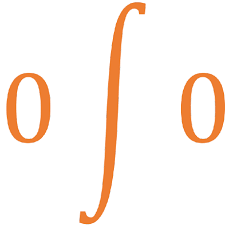Introduction
I would like to introduce OSO to the steem community. It is a project that I am proud to say I am a part of. Recently, we submitted a grant application to help our network grow and are anxiously awaiting to hear the results of that. The grant we applied for was the Catalyst Grant from Digital Science. We are attempting to expand open science to a larger degree. The idea is to make, by organizing, a decentralized autonomous organization (DAO) for scientific research. It would act as an underlying connection layer for scientist and their research. I just wanted to bring more awareness to our cause and if anyone is interested in getting involved in anyway please feel free to reach out and visit out github page. All contact information is available on there. Below is the abstract introducing the idea and links to the website, white paper and github page for the project.
Abstract
Modern day science has been a collective effort of different researchers and research groups. The collective intellectual power gathered by the scientific ecosystem is akin to the group intelligence (the “wisdom of crowds”) where a wise crowd is generally more intelligent compared to individual members in the group. The additional gain in intelligence is primarily dependent on the efficient flow of value (capital, information, etc.) among the members. The scientific community is still dependent on the rudimentary system for value flow, which is highly centralized, opaque, and redundant. Thereby it suffers from several problems: funding agencies are controlled by a small number of people, majority of scientists’ time is consumed by grant application writing with small success rates, a slow publication process, institutional biases, underpaid researchers, non-reproducible publications, high subscription fees for journals, and a general focus on quantity of scientific publications over quality. These problems can be solved and the overall efficiency of the scientific community can be improved by creating an open and decentralized scientific ecosystem based on blockchain technology (or its variants).
Open Science Organization (OSO) is a non-profit Decentralized Autonomous Organization (DAO), which promises to create an open, decentralized, and efficient scientific ecosystem. The three key characteristics of OSO ecosystem are
- an open democratic funding process
- an open democratic perpetual review process
- the flow of value (in OSO tokens) created by the scientific results (publications, products, patents, etc.) back to the funding, thus creating a perpetual system for scientific research
In OSO ecosystem, all steps/procedures will be algorithmic or will be based on community voting. Even certain aspects of algorithmic steps (e.g. algorithms used for decision making) are subjected to change based upon voting. Any individual or organization who holds OSO tokens will be considered an entity (or a member) in the OSO ecosystem. Each entity will have a voting power proportional to their expertise (e-value) in the corresponding scientific domain and the amount of value (OSO tokens) they are willing to invest/stake.
Conclusion
This is no small task and it is going to take a community to achieve. All are welcome and encourage to participate. It is going to take people with all different backgrounds and expertise to get this off the ground. Come join us! This is just an introduction I plan to write a few follow up posts introducing some of the projects that will be included under the umbrella of OSO. You can read more about them on our github page. These include projects like, the URI, IPIS, RR-index, Open Review Model for publication.
Links:
Original White Paper:
https://github.com/open-science-org/wiki/blob/master/OSO_white_paper.pdf
Github Page:
https://github.com/open-science-org

Very informative. Wishing other field of studies follow suite taking OSO as an example
Hopefully we can pave the way and bring this idea to a wide variety of disciplines! Thank you!
Hi! I am a robot. I just upvoted you! I found similar content that readers might be interested in:
https://github.com/open-science-org/OSO